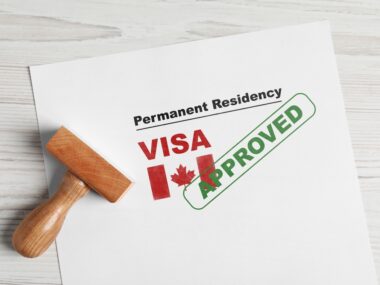Understanding the legal challenges to recent U.S. immigration policies is essential for applicants navigating the complex immigration system. These legal battles affect visa approvals, asylum applications, and work permits, making it crucial for immigrants to stay informed. Court decisions on travel bans, DACA, the public charge rule, asylum restrictions, and TPS terminations can directly impact eligibility and processing times.
Advertisement
I believe staying updated on these legal disputes is not just about awareness—it’s about taking proactive steps to protect your immigration status and plan for the future. Let me guide you through the top five legal challenges currently shaping U.S. immigration policies and explain what they mean for applicants like you.
Legal Challenge: Travel Bans
The U.S. government has issued travel bans restricting entry from specific countries. These bans, often justified on national security grounds, have faced multiple legal challenges. Critics argue that the bans unfairly target individuals based on nationality or religion, violating constitutional rights. Courts have been reviewing these bans to determine whether they are discriminatory or necessary for national security.

For immigration applicants from affected countries, these bans create serious obstacles. They can lead to visa denials, extended processing times, or outright ineligibility to enter the U.S. Even applicants with valid visas may face additional scrutiny, making travel uncertain. Court rulings on these bans will determine if restrictions are lifted or expanded.
Applicants should stay informed about the status of travel bans and seek legal advice if they are affected. In some cases, applying for waivers or exploring alternative visa options may be necessary to navigate these restrictions successfully.
Impact on Applicants:
- Visa denials and long wait times
- Increased background checks
- Possible eligibility for waivers
What to Do:
- Stay updated on legal rulings
- Consult an immigration lawyer for alternatives
- Apply for a waiver if eligible
Read: 10 Fast-Growing Industries Hiring in the USA Right Now
Legal Challenge: DACA Rescission
The Deferred Action for Childhood Arrivals (DACA) program provides work permits and protection from deportation for undocumented individuals brought to the U.S. as children. However, attempts to end the program have resulted in multiple legal battles. Courts are now determining whether the government has the authority to rescind DACA without violating existing legal protections.
For current and potential DACA recipients, these legal disputes create uncertainty. Many rely on DACA for work, education, and stability, but ongoing court cases mean the program’s future remains uncertain. Some rulings have temporarily protected DACA recipients, while others suggest that the program could be ended permanently.
Applicants should act quickly to renew their DACA status if eligible. They should also explore other immigration pathways, as relying solely on DACA may not be a long-term solution. Seeking legal guidance can help individuals understand their options and prepare for potential changes.
Impact on Applicants:
- Risk of losing work permits
- Uncertainty about long-term status
- Challenges in renewing DACA applications
What to Do:
- Renew DACA status as early as possible
- Seek legal alternatives for permanent residency
- Stay informed about court rulings affecting DACA
Legal Challenge: Public Charge Rule
The “public charge” rule was expanded to make it harder for immigrants who use public benefits to obtain visas or green cards. This policy has faced strong legal opposition, with courts debating whether it unfairly discriminates against lower-income immigrants. Some courts have blocked the rule, while others have upheld it, creating confusion for applicants.

Immigrants worry that using benefits like food assistance or Medicaid could harm their chances of getting a visa or permanent residency. The rule has also discouraged many from seeking medical or financial assistance, fearing it will be used against them in their applications. Legal decisions will determine if the rule remains in place or is modified.
To avoid problems, applicants should carefully assess which benefits they use and seek legal advice if unsure. Understanding how the rule applies to specific situations can help applicants make informed decisions about their immigration status.
Impact on Applicants:
- Risk of visa denial due to benefit usage
- Fear of using essential public services
- Uncertainty about changing legal rulings
What to Do:
- Consult a lawyer to assess eligibility
- Avoid unnecessary use of public benefits
- Stay updated on court rulings affecting the rule
Read: Care Assistant Jobs in the USA: Your Complete Guide to Starting a Rewarding Career
Legal Challenge: Asylum Restrictions
Recent policies have made it harder for asylum seekers to apply and receive protection in the U.S. These restrictions include narrowing the eligibility criteria and increasing the burden of proof for applicants. Legal challenges argue that these policies violate international and U.S. laws designed to protect individuals fleeing persecution.
For asylum seekers, these restrictions mean a higher risk of denial, longer waiting times, and possible deportation while their cases are pending. Courts are reviewing whether these rules align with the U.S.’s legal obligations to protect refugees. Some rulings have temporarily blocked restrictions, but the future remains uncertain.
Applicants should gather strong evidence to support their asylum claims and seek legal representation. Understanding new policies and their potential impact can help applicants navigate the asylum process more effectively. Legal advocacy groups can also provide guidance and assistance.
Impact on Applicants:
- Higher denial rates for asylum claims
- Longer processing and wait times
- Increased risk of deportation
What to Do:
- Collect strong evidence for your case
- Seek legal representation for guidance
- Stay updated on asylum policy changes
Legal Challenge: Temporary Protected Status (TPS) Termination
The U.S. government has attempted to end Temporary Protected Status (TPS)for individuals from certain countries. Lawsuits have challenged these terminations, arguing that they violate existing protections for those who cannot safely return to their home countries. Courts are reviewing whether the government followed proper legal procedures in ending TPS.

For TPS holders, these legal battles determine whether they can continue living and working in the U.S. If TPS is revoked, thousands could face deportation or job loss. Some court rulings have temporarily extended TPS protections, but the long-term outlook remains uncertain.
Applicants should closely monitor their country’s TPS designation and prepare backup plans. Exploring other immigration pathways, such as family-based visas or employment sponsorship, can provide alternative options. Legal assistance can help applicants understand their rights and potential next steps.
Impact on Applicants:
- Risk of losing legal status and work permits
- Potential deportation if TPS is revoked
- Need for alternative immigration solutions
What to Do:
- Stay informed on court rulings
- Explore alternative visa options
- Consult an immigration attorney for guidance
Read: Security Guard Jobs in the USA: High-Demand Career Opportunities
Recent U.S. immigration policies face legal challenges that impact applicants seeking visas, asylum, and protected status. Court rulings on travel bans, DACA, the public charge rule, asylum restrictions, and TPS terminations create uncertainty. Applicants must stay informed, seek legal advice, and explore alternative options to navigate these changing policies effectively.


